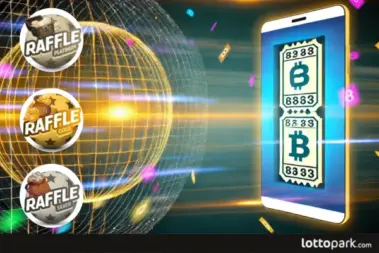
Raffle lotteries have long captured the imagination of communities worldwide, evolving from rudimentary ticket drawings to sophisticated digital systems. This article delves into the captivating history of raffle lotteries, tracing their journey from ancient practices to contemporary innovations, with an eye towards our modern offerings like the GG World Silver Raffle, GG World Gold Raffle, and GG World Platinum Raffle.
Ancient Origins
The concept of lotteries, particularly raffles, dates back thousands of years. Archaeological evidence indicates that rudimentary forms of lotteries were held in ancient China during the Han Dynasty (205-187 B.C.), where they were employed to finance massive state projects, including the construction of the Great Wall. Similarly, ancient Roman society embraced raffles during feasts, awarding various prizes to participants in a display of wealth and generosity.
Medieval and Renaissance Europe
Raffle lotteries gained even greater popularity in medieval Europe. By the 15th century, towns in the Low Countries, such as Bruges and Utrecht, had institutionalized lotteries to raise funds for fortification efforts and altruistic causes. These early raffles brought communities together, offering a blend of excitement and philanthropy.
The Italian Renaissance further entrenched lotteries, with Florence hosting Italy’s first recorded lottery in 1530. This model inspired state-sponsored lotteries throughout Europe, highlighting raffles as both a social event and a financial instrument for public projects.
The Expansion in the 17th and 18th Centuries
Lotteries, including raffles, flourished in the 17th century. In England, both public and private raffles became commonplace, financing infrastructure projects such as roads and bridges. Their success led European settlers to introduce the concept to America in the 18th century, where lotteries helped fund burgeoning architectural ventures, including prestigious educational institutions like Harvard and Yale.
The 20th Century: Regulation and Modernization
During the 20th century, raffle lotteries underwent extensive regulation to ensure fairness and transparency. Governments worldwide began to oversee lottery operations, recognizing their potential as long-term revenue sources for public spending. As trust grew, raffles became a staple for charitable fundraising, facilitated by technological innovations like printing and electronic systems that streamlined ticket production and sales.
Contemporary Raffles: Digital Evolution and Popularity
In the 21st century, raffle lotteries have embraced the digital landscape, revolutionizing participation and reach. Online platforms have made raffles accessible to a global audience, enticing a younger demographic and allowing for engagements that transcend geographical boundaries. Our own GG World Silver Raffle online, GG World Gold Raffle online, and GG World Platinum Raffle online exemplify this evolution, offering varied prize tiers and a seamless digital experience.
Innovations such as blockchain technology promise further advancements in raffle transparency and security, enhancing participant trust through reliable ticket distribution and auditing mechanisms.
Conclusion: A Timeless Tradition
The history of raffle lotteries is emblematic of human innovation and cultural adaptability. From their ancient roots to their modern digital incarnations, raffles continue to enchant participants worldwide, merging the thrill of chance with community spirit. As technology evolves, so too will the landscape of lottery raffles, ensuring their lasting presence in societies globally.
Today’s raffles, like our GG World series, not only offer engaging gameplay but also highlight the enduring allure and potential for good inherent in lottery traditions. Explore the world of raffles through our innovative offerings and become part of this vibrant, historic tradition.






